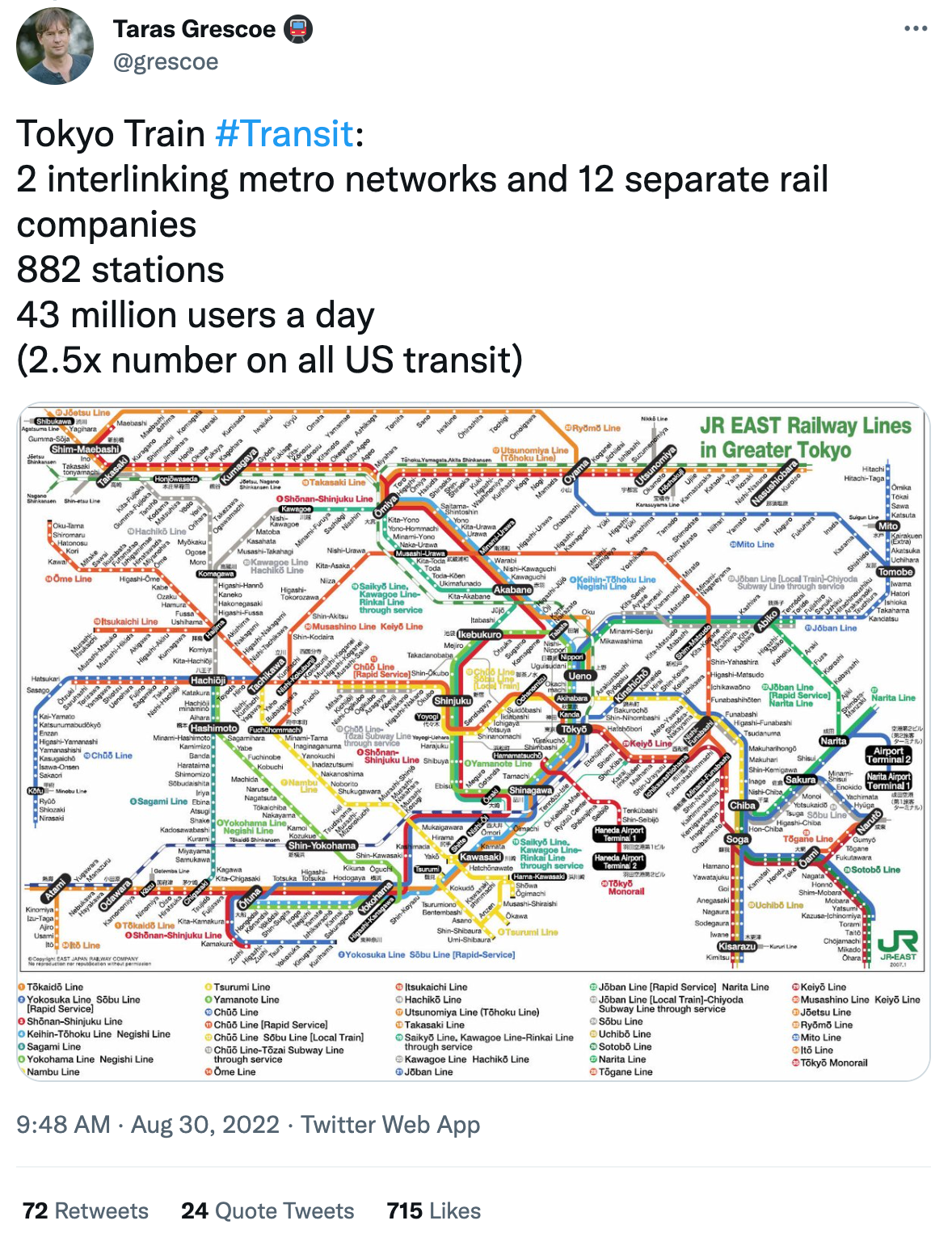Perks and Harbingers
A row at Saville Row, a transport miracle, Gorbachev, and modular work.

Good morning! Below are a few quick thoughts based on today's readings. Follow me on Twitter for shorter takes.
"Landlord" vs. "Tenant"
A battle is brewing between landlords and tenants in London's historical Saville Row. "The Row" is synonymous with masterful tailoring and has been home to some of the world's finest and most expensive suit-makers for more than 200 years.
The Wall Street Journal reports:
"The biggest landlord on a city street renowned for bespoke tailoring is seeking to add more cafes, retail outlets and office space, a move it says will update this quiet thoroughfare dedicated for centuries to the handmade English suit.
The plan... are running into opposition from some of the street’s longtime tenants, who say the redevelopment could dilute the street’s traditional heritage."
On the surface, this seems like a battle between a greedy "landlord" and a group of "traditional" tenants. But the details highlight the current state of capitalism:
The landlord, The Pollen Estate, was established in 1622 by one William Maddox. But today, it is majority-owned by Norway's sovereign-wealth fund. The fund reinvests Norway's oil profits into more sustainable businesses.
One of the most prominent tenant-tailors mentioned in the piece, Gieves & Hawkes, was established in 1771. It has been dressing English royals for over 200 years, but it is now owned by a Chinese technology and investment firm.
The row at the Row is a reminder that in a world where capital flows freely, nothing is as it seems. But London remains wonderful.
The Japanese Miracle
Taras Gresco points out that every day, more people use the train in Tokyo than in all of the US combined.

Farewell, Gorbachev
"People are prepared to obtain order and tranquility by giving up other values such as democracy and freedom. This dangerous temptation has not disappeared, even today."
Gorbachev Mikhail Gorbachev wrote the above in 1993 in a Guardian retrospective about Joseph Stalin. I quoted him in a piece I wrote in 2009 about the prospects of liberalization in China.
Gorbachev's 1989 visit to Beijing was interrupted by the protests on Tian'anmen Square. His welcome ceremony was conducted at the airport instead of at the square itself. Some protesters lamented "the injustice of Heaven having provided Russia with a Gorbachev, while they only got a Deng Xiaoping."
The comparative history of Communist China and the USSR is still being written. So far, the Chinese Communist Party has managed to keep China together and reform large parts of the economy. But the internal contradictions that tore apart the USSR are still present in China.
Perks and Harbingers
Flexible work is trickling beyond the white-collar world. The Journal reports:
"It isn’t just remote workers who have gained leverage over when they work.
Shift workers such as assemblers and hotel maids are also getting more flexibility to set their own hours as the pandemic and the historically tight labor market change the economy.
Manufacturers, hotels, warehouses and restaurants are allowing new hires to work just a few days a week, take on four-hour shifts or even choose new hours daily using phone apps, according to the companies, job boards and economists."
This sounds like good news. But it could also mean service jobs are becoming more modular and less stable. "Empowering" employees to choose their own shifts and workdays sounds awful like being an Uber driver than an actual employee. I am suspending judgment as to whether this is good or bad. All that matters, for now, is that it is happening.
What's on your mind?
Are there any questions or topics you'd like me to address? Send them through.
Dror Poleg Newsletter
Join the newsletter to receive the latest updates in your inbox.

